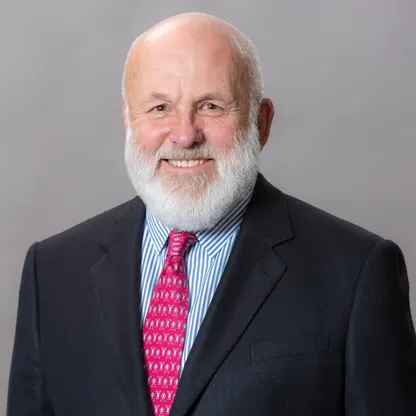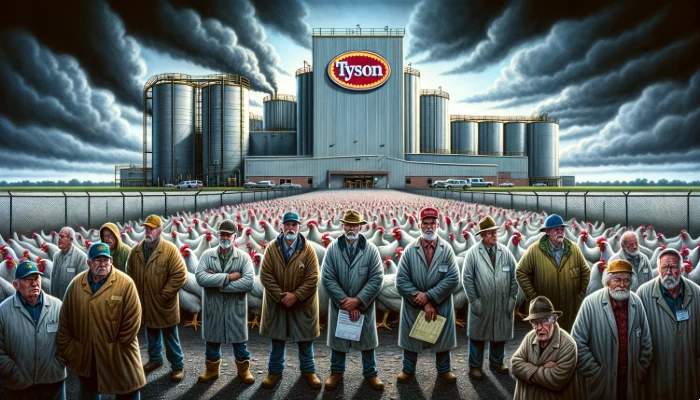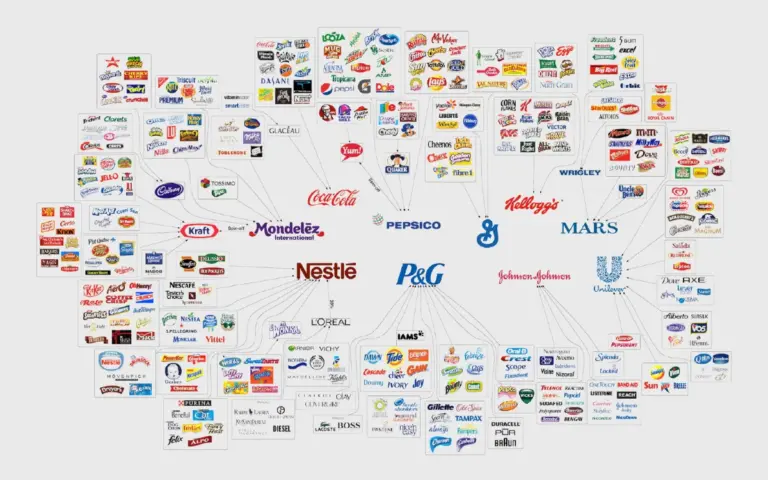In Stoddard County, Missouri, a collective of local chicken producers has initiated a lawsuit against Tyson Foods, following the shutdown of a Tyson processing facility in the southeastern part of the state.
The legal action, which has been lodged in the Stoddard County court system, levels accusations against Tyson Foods and additional parties, citing violations of contractual agreements and engaging in deceitful misrepresentation.
Contained within the 36-page legal document is the allegation that Tyson Foods was aware of the impending closure of the Dexter processing plant as early as November 2021. Despite this knowledge, Tyson reportedly withheld this critical information from the chicken farmers, misleading them to believe that the plant’s operations would continue for the foreseeable future.
The plaintiffs, comprising local farmers, assert that they were compelled to incur substantial financial burdens, investing millions in compliance with their contractual obligations to Tyson Foods for the rearing and maintenance of poultry.
Presently, these farmers are seeking restitution for their substantial financial investments.
In a statement issued on Tuesday, Russ Oliver of The Oliver Law Firm, L.C. addressed the lawsuit, stating:
“Our egg layer farmer clients have been put through a torturous five months since Tyson’s August 7th closure announcement. They have millions of dollars of debt because of Tyson’s false promises. Cal-Maine’s proposal is to pay these farmers roughly half of what their contract with Tyson paid for a dozen eggs. To add insult to injury, Cal-Maine is requiring the farmers to fully release Tyson from any liability before Cal-Maine will do business with them. You really have to ask: Why would Cal-Maine insist on farmers releasing claims against Tyson?

“Tyson’s closing of the Dexter Complex is bad for the farmers, bad for other businesses who contracted with Tyson, bad for the City of Dexter, and the lost 900 plus jobs in Dexter are now permanently replaced by 96 jobs. As always, the only winners are the big corporations.
“Generations of farmers have raised chickens for Tyson. Tyson strong-armed these farmers into taking on debt, and now the farmers are being strong-armed into taking terrible deals. This is wrong, and we will not stand for it. That is why we filed this lawsuit.”
Efforts have been made to contact Tyson Foods for a statement on this matter, but as yet, there has been no response.
Top 5 Tyson Executives Make Combined $36.5 Million Amidst Company Challenges and Farmer Lawsuit
As a stark contrast to the struggles faced by poultry farmers in Stoddard County, Missouri, Tyson Foods, headquartered in Springdale, Arkansas, has reported significant earnings for its top executives in 2023. Despite a turbulent fiscal year, marked by a net loss of \$649 million, the highest-ranking officers at Tyson Foods collectively earned a striking \$36.5 million.
The financial landscape for Tyson’s leadership paints a contrasting picture to the hardships faced by the chicken farmers entangled in legal disputes with the company. While these local farmers grappled with the fallout of a closed processing plant and the financial strain it imposed, Tyson’s top executives navigated a year of mixed financial fortunes.
In a recent filing with the U.S. Securities and Exchange Commission, details emerged about the compensation of Tyson’s top five executives. Notably, CEO Donnie King and board chairman John H. Tyson experienced fluctuations in their earnings, with considerable shifts in stock awards and performance bonuses.

John H. Tyson, a long-standing figure in the company since 1984 and grandson of the founder, received a total compensation package valued at $8.827 million, a decrease from the previous year.
This includes a base salary of $1.212 million and a performance bonus of $315,000 along with stock and option awards totaling $5.959 million to add to his current net worth of $2.6 billion.
CEO Donnie King, at the helm since June 2021, saw a notable increase in his compensation, totaling $13.18 million. His earnings included $1.396 million in base salary with a 7.71% annual pay raise, along with a performance bonus of $436,154. He also received 61.5% more stock and options in 2023 as he did the previous year, with $10.943 million. In total, the Tyson CEO took home nearly 10% more in 2023.

The narrative extends to three executives newly appointed in 2023, each bringing their unique financial compensation stories. Melanie Boulden, Brady Stewart, and John R. Tyson, the great-grandson of the founder, collectively amassed salaries, bonuses, and stock awards amounting to millions. Their earnings reflect both the opportunities and challenges within Tyson Foods during a financially tumultuous year.
More To Discover
- The Groundbreaking Shutdown of the Original Nuclear Reactor Will Unlock More Future Fusion Insights
- America’s Wild Boar Invasion Is Getting Worse, So Why Don’t We Just Eat Them?
- Why Are Michigan Orchards Leaving Apples on Trees In Winter? Money, of course.
- USDA Updates Plant Hardiness Map Reflecting Warmer Zones, Stirring Gardener Concerns Over Climate Change
Furthermore, Tyson Foods’ upcoming annual shareholder meeting, set for February 8th, is poised to address several critical issues. Shareholders will vote on a range of proposals encompassing climate lobbying practices, labor practices, deforestation-free supply chains, and eco-friendly packaging. Interestingly, these proposals don’t have the support of the board of directors, as indicated in the proxy filing.
These financial releases of Tyson’s executive compensation emerges amid the ongoing lawsuit, shedding light on the disparities between corporate earnings and the struggles of local farmers.




















